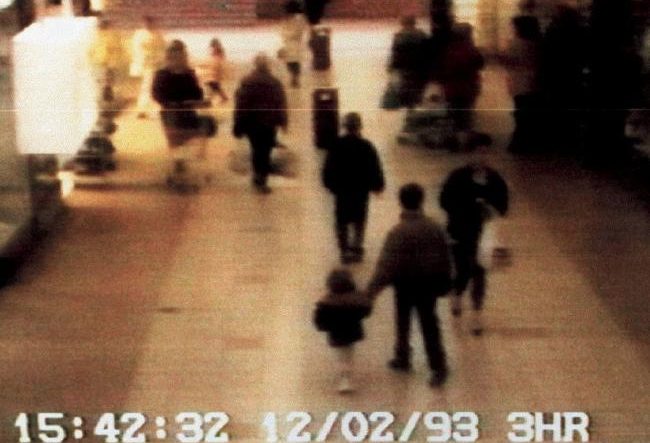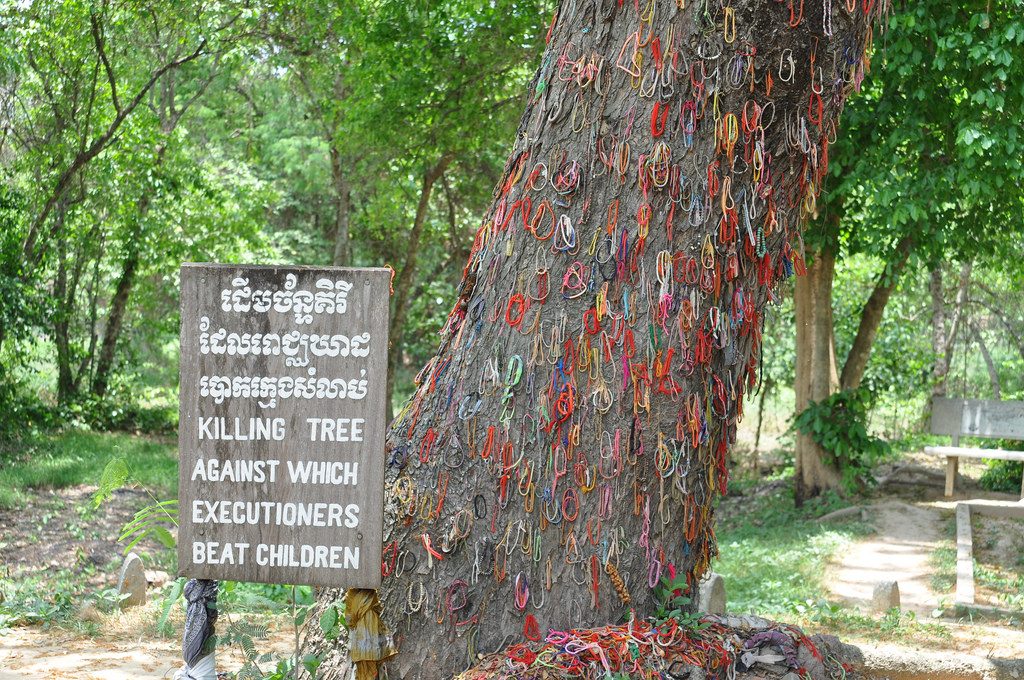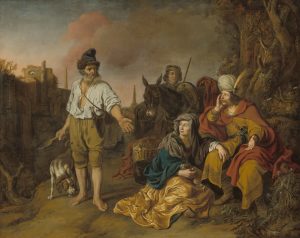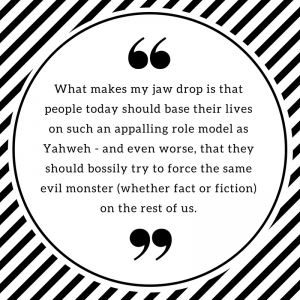Youth Resource
A genocidal God? Violence in the Old Testament
Content Warning: While this segment does not display any graphic images, it does contain mature themes, including references to murder and rape, and thus may not be appropriate for younger students.
This segment comes from Episode 1: War + Peace.
From Jesus’ command to “love your enemies” to the idea of “holy war” is a giant leap. Yet from the Old Testament through to the Crusades and the inquisitions, Christian history is full of violence. This segment tackles the challenging topic of violence in the Old Testament.
Videos
-
A genocidal God?
The Old Testament is full of violence. Does that mean God himself is violent?
Transcript
JOHN DICKSON: The sprawling plain of the West Bank. Home to Jericho, one of the world’s oldest archaeological ruins. It provides proof, some say, that the God of the Old Testament is violent, and even genocidal.
Jericho was the first city to fall when the ancient Israelites invaded the land of Canaan, three-and-a-half thousand years ago. “Be strong and courageous,” said the LORD. “Take the Land!”
What happened here is disturbing. But was it “genocide”?
“When you take this land,” God warned the Israelites, “don’t for a moment think it’s because you are a righteous people. No – it’s because these Canaanite towns have become unspeakably evil.” Israel, in other words, was to act as an instrument of divine justice.
We are talking serious evil – including child sacrifice.
It’s strange that the account puts it like this, because, in the ancient world, you didn’t need a moral justification for going to war. If you were able to take your enemy’s land, you were clear to do so. But the Bible repeatedly says this has nothing to do with a land-grab or racial purification. It was divine judgment. Now that is still disturbing, but it mustn’t be confused with genocide.
IAIN PROVAN: In terms of the conquest of Canaan, it is made very, very clear that this is not about the Israelites simply desiring somebody else’s land and ethnically cleansing the people groups there. That, in fact, this is about the justice of God coming on a corrupt culture – a culture that has been corrupt for a very long time, hundreds of years, in fact. So, from their point of view, this is about God’s universal justice-bringing. It’s not about the gods supporting a particular king in wiping out another people group.
JOHN DICKSON: The point is driven home in the opening pages of the account.
It’s very odd. The opening story of the Old Testament’s main military record says that Joshua – Israel’s general – has a vision of an angelic figure called, “the commander of the armies of the Lord”. Joshua asks, naturally enough, “Are you for us or them?” The figure replies, “Neither”.
We turn the page, and before we hear anything about military action, we’re told about a Canaanite woman living by the city wall who already knows God. Rahab is a pagan prostitute, and she asks to be spared.
ACTOR (RAHAB, JOSHUA 2:8-10): We have heard how the LORD dried up the water of the Red Sea for you when you came out of Egypt, and what you did to the two kings of the Amorites east of the Jordan. When we heard of this, our hearts melted in fear and everyone’s courage failed because of you, for the LORD your God is God in the heaven above and on the earth below.
Now, swear to me, that because I have shown kindness to you, you will show kindness to my family. Give me a sign that you will spare the lives of my father and my mother; my brothers and sisters.
JOHN DICKSON: She was given a sign, and she was spared.
The military violence of the rest of the book of Joshua is real and awful. I remember reading it to my son years ago and skipping over a few of the darker pages. But I know of no other military record from the ancient world that works so hard to tell readers that God has no favourites in this battle and his first desire is to have mercy on enemies like Rahab.
It’s also remarkable that the ambitions of Israel stopped here. Unlike all surrounding cultures, Israel, even at the height of its power, never tried to conquer beyond these borders. This was a one-off.
But some Old Testament stories have no redeeming features.
According to the book of Judges, a Levite, a religious leader, is traveling with his concubine. They spend the night at Gibeah, a village that once stood on this hill, north of Jerusalem.
The townsfolk beat on the door of the house in the middle of the night, demanding “entertainment”. The Levite throws the girl to the mob. They do their worst, and leave her for dead.
It gets worse. The Levite picks her up, throws her on his donkey. And when she doesn’t wake up, he gets out his knife and, well, he sends her body parts to the twelve regions of Israel as a rallying cry against the people of Gibeah.
The Israelite armies gather on the hill of Mizpah over there, and civil war breaks out, with thousands more being killed. The whole story is sickening in its violence.
But what’s a story like this doing in the Bible?
As any reader of the book of Judges will discover, it’s not there as a moral example – quite the opposite. This, and many stories like it, are designed to show us just how bad God’s own people had become in this period.
I don’t know any other national history that so freely tells us about the decadence, violence, and injustice of its own people, sometimes its own heroes. Exposing religious hypocrisy might feel like a very modern thing, but actually, it begins in the Jewish scriptures, or Old Testament. Story after story reminds us that sometimes the chosen people are the worst of the lot.
IAIN PROVAN: I think biblical narrative is notably anti-heroic. In the ancient world, the fundamental genres were myth and so on, and of course if the kings and the warriors are also godlike then what you get is the kind of myths you later get in Greece, where it’s all about Achilles and all of those guys and it’s about glory and honour and that kind of warrior ideal. The biblical story is unique in the ancient world because it’s fundamentally a story about ordinary people, and it’s told within normal frames of time and history and so on and we recognise these characters as being exactly like us. So, think of King David, one of the great heroes, the promise that God makes to David entirely crucial to the whole story, and yet the story does not shrink from telling you that David had a very dark side and that his behaviour caused enormous pain and difficulty and suffering, not least to his own family.
JOHN DICKSON: No one denies there are difficult, confronting parts of the Old Testament. But understanding them is more complex than we often think. Charges of genocide and vindictiveness are simplistic. And one thing is clear above everything else: as the prostitute Rahab discovered, the door of divine mercy always remains open.
close
Theme Question
Do you associate the God of the Bible more with war or with peace? Why?
Engage
- Look at the following images and read the descriptions below. Discuss as a class whether you have heard of these crimes before and whether you know any additional information about them.

A memorial set up to pay tributes to the victims of the Sandy Hook Elementary School shooting on December 14, 2012, in Newtown, Connecticut in the United States. On this day, a 20-year-old man Adam Lanza shot and killed 20 children (all aged 6 or 7) and 6 adult staff members.

CCTV footage of two-year-old James Bulger being abducted from a UK shopping centre by two ten-year-old boys, Jon Venables and Robert Thompson. The boys tortured and killed Bulger and his mutilated body was found on a nearby railway line two days after his murder.

A tree in the Cambodian Killing Fields that babies and young children were smashed against and killed as their parents were accused of crimes against the Khmer Rouge government. They were killed in order that they wouldn’t grow up and try to avenge their parents’ deaths. Image: Killing tree against which babies were executed by shankar s. available at https://www.flickr.com/photos/shankaronline/14250895124 under a Creative Commons BY-NC-ND 2.0 Licence
- In light of these cases, discuss: Do you think some crimes are unforgivable? Why or why not?
- How do the following situations make you feel?
- An innocent person is murdered
- Someone who has committed a great injustice (such as murder) is never caught and continues to live a comfortable, normal life
- Do you think there are ever any situations in which violence is justifiable? Why or why not?
Understand & Evaluate
Watch the segment: A genocidal God? Violence in the Old Testament
- Draw a picture that represents what the Canaanites were like. What was one of the “unspeakably evil” things they were guilty of? What punishment do you think this practice deserves?
- The Bible says that God instructed the Israelites to “take the land” from the Canaanites. Why did he give this command? Was it because the Israelites were righteous?
- What strikes you about Joshua’s encounter with the “commander of the armies of the LORD”? What might this encounter show us about God?
- What limits did God place on the nation of Israel?
- Richard Dawkins describes the killing of the Canaanites as an “ethnic cleansing” in which “bloodthirsty massacres” were carried out with “xenophobic relish”. He says “the Bible story of Joshua’s destruction of Jericho, and the invasion of the Promised Land in general, is morally indistinguishable from Hitler’s invasion of Poland”.
- What arguments do John Dickson and Iain Provan make to counter what Dawkins says?
- Are you more convinced by Dickson and Provan, or by Dawkins?
- What questions or concerns do you still have about the destruction of Jericho?
- What is your reaction to the story of the Levite and his night at Gibeah?

- What is this story doing in the Bible? What point does John Dickson say it is trying to make?
- From the stories described in the video, what picture do we get of …
- Humanity in general?
- The character of God?
Bible Focus
Read Joshua 2:1-24 and Joshua 6:25.
- What do Rahab’s actions and her conversation with the spies show us about what she believed about God?
- Why do you think Rahab was required to tie a scarlet cord in the window?
- Improvise and perform the conversation Rahab might have had with her family after the events of Chapter 2.
- What might Rahab’s story show us about God’s justice and his mercy?
Read Luke 23:33-43.
- How might Jesus’ death on the cross show us God’s view of justice and mercy?
Apply
- Throughout history, events like the battle of Jericho have been used to support the idea of a “holy war”. Based on what we have learnt today, do you think this interpretation is justified?
- Many people have suggested that the “violent” God described in the Old Testament is completely different from Jesus, who taught his followers to love their enemies. Do you agree or disagree with this? Why or why not?
- Hold a debate on the topic: Does God have the right to judge the behaviour of humans?
- Write a reply to Richard Dawkins’ comment from The God Delusion, drawing on some of the ideas from this class:

Extend
- Watch this interview between CPX’s Simon Smart and Iain Provan of Regent College: “The Old Testament: A Context for Violence”. Post an “online comment” of a few sentences explaining what stood out to you or made you think, and any questions you had.



